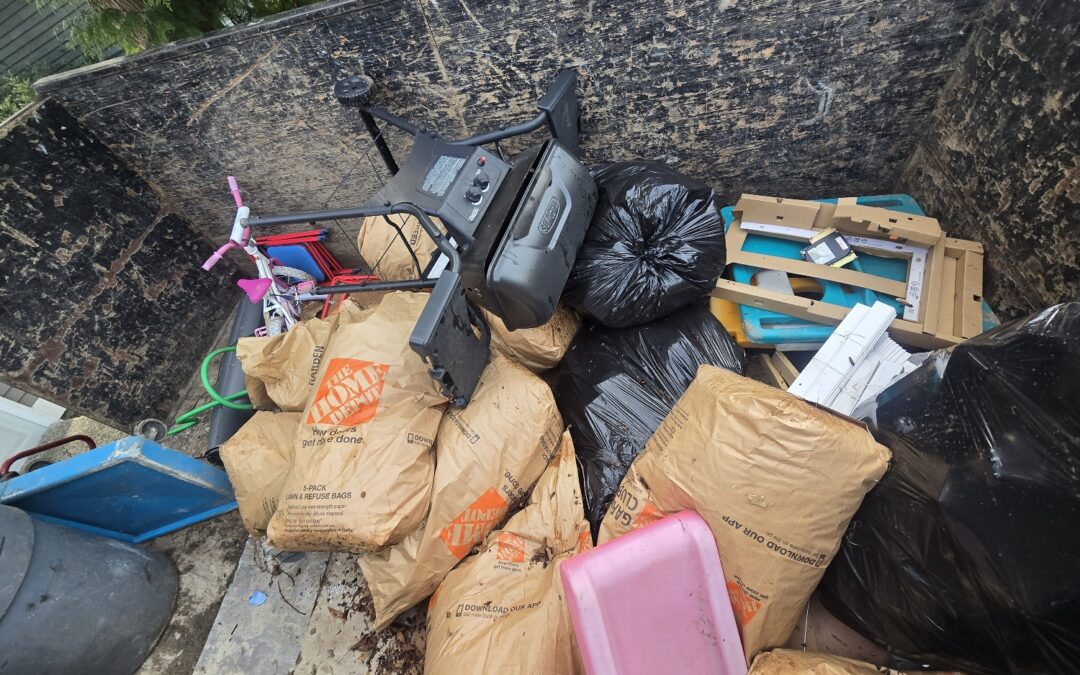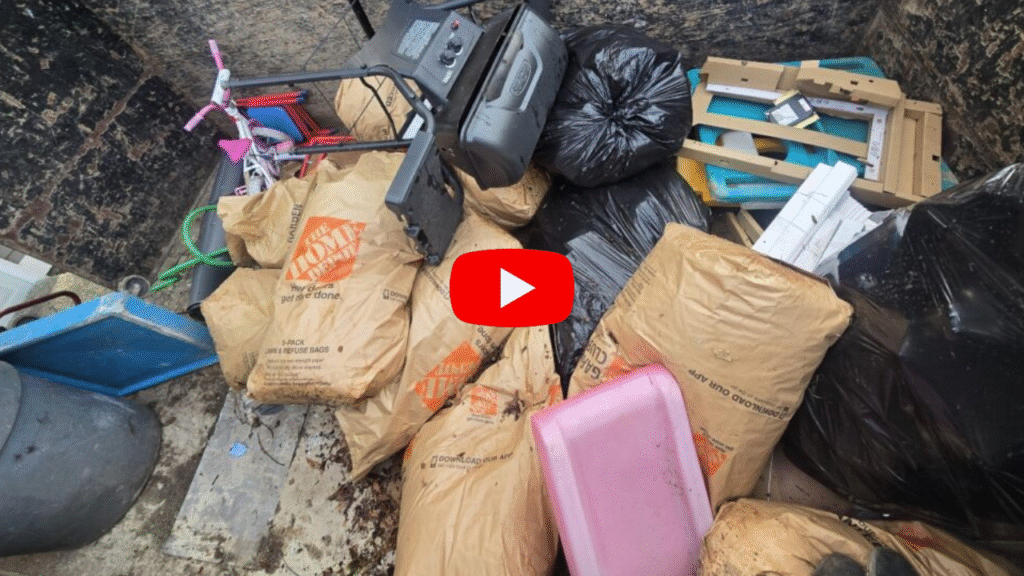Plastics are everywhere—from food packaging and shampoo bottles to grocery bags and electronics. But while the recycling symbol stamped on many of these items might suggest they’re all recyclable, the truth is far more complicated. If you’ve ever stood in front of a bin wondering whether to toss or recycle, you’re not alone.
Understanding which plastics are not recyclable and which plastics can be recycled is critical for reducing environmental harm and ensuring that your recyclables don’t get sent to the landfill by mistake. In this article, we’ll break down everything you need to know—plus how working with a “junk removal service near me” can help you get rid of hard-to-dispose-of plastics responsibly.
Why Not All Plastics Are Recyclable
There are 7 main categories of plastic, each with different properties, melting points, and recyclability levels. The number found inside the triangle recycling symbol (called the resin identification code) tells you which type of plastic you’re dealing with.
Here’s why some plastics aren’t recyclable:
- Low market demand for the recycled material
- Chemical additives that contaminate the recycling stream
- Multi-layered plastics that are difficult to separate
- Food residue and other contaminants
- Lack of local recycling infrastructure
This is especially important in urban areas like Seattle, where strict waste sorting rules apply and improper disposal can lead to fines—or unnecessary trips to the “dump near me”.
Plastics That CAN Be Recycled (Most of the Time)
-
Plastic #1 – PET or PETE (Polyethylene Terephthalate)
Common uses: Water bottles, soda bottles, salad dressing containers.
Recyclable? Yes. PET is widely accepted by curbside programs and is easily turned into fiberfill for jackets, carpeting, or new containers.
-
Plastic #2 – HDPE (High-Density Polyethylene)
Common uses: Milk jugs, detergent bottles, shampoo bottles, juice containers.
Recyclable? Yes. HDPE is strong, durable, and one of the most commonly recycled plastics in the U.S.
HDPE and PET are typically the safest and most accepted plastics in household recycling programs.
Plastics That Are SOMETIMES Recyclable
-
Plastic #3 – PVC (Polyvinyl Chloride)
Common uses: Plumbing pipes, vinyl siding, clear food wrap, some toys.
Recyclable? Rarely. PVC contains chlorine and other toxic chemicals, making it hard to recycle and harmful if incinerated.
-
Plastic #4 – LDPE (Low-Density Polyethylene)
Common uses: Grocery bags, bread bags, some food wraps, squeezable bottles.
Recyclable? Sometimes. Many curbside programs don’t accept LDPE, but some stores offer bag recycling drop-offs.
-
Plastic #5 – PP (Polypropylene)
Common uses: Yogurt cups, straws, bottle caps, and some food containers.
Recyclable? Increasingly accepted, but it still varies by location.
Seattle’s recycling system is relatively progressive, but even here, many residents still search for Seattle junk removal when they’re unsure how to properly dispose of certain plastics.
Plastics That Are NOT Recyclable
-
Plastic #6 – PS (Polystyrene)
Common uses: Foam cups, takeout containers, egg cartons, packing peanuts.
Recyclable? No. Polystyrene is not biodegradable, breaks apart easily, and is not accepted in most curbside programs. It’s considered one of the worst offenders in marine and land pollution.
-
Plastic #7 – Other (Mixed or Unknown Plastics)
Common uses: Sunglasses, CDs, large reusable water bottles, multi-layer packaging.
Recyclable? No. This category includes a mix of plastic types, making it nearly impossible to recycle efficiently.
Rule of Thumb: When in doubt, check your city’s recycling guidelines—or contact a professional “junk removal company near me” to ensure items are disposed of responsibly.
Plastic Recycling Tips for Seattle Residents
Seattle residents are fortunate to have one of the most extensive recycling programs in the country. Still, confusion over plastics leads many to clog up recycling bins with non-recyclables, which can contaminate entire batches and send them to the landfill.
Here’s how to recycle smartly in Seattle:
- Rinse containers free of food and liquid
- Remove plastic caps unless specifically allowed
- Flatten large items to save space
- When in doubt, don’t recycle — find another solution
If you’re stuck with a pile of questionable plastics, your best bet might be professional junk removal Seattle services that know how to separate and dispose of everything safely.
What to Do With Non-Recyclable Plastics
If your plastics fall into the #3, #6, or #7 categories—or you simply can’t identify them—it’s time to explore alternative options.
1. Reuse Creatively
Turn containers into storage bins, garden planters, or craft supplies.
2. Drop-Off at Specialty Recycling Centers
Some facilities take difficult-to-recycle items for a fee. Searching for a local “dump near me” may help you locate these centers.
3. Hire a Professional Junk Removal Service
If you’re overwhelmed by volume or unsure what’s recyclable, hiring a “junk removal service near me” takes the guesswork out of it.
Why Improper Plastic Disposal Matters
Americans throw away over 30 million tons of plastic every year—and only about 9% is recycled. Improper plastic disposal harms wildlife, pollutes waterways, and contributes to microplastics entering the food chain.
As responsible citizens, we can reduce plastic pollution by:
- Choosing reusable alternatives
- Understanding what’s recyclable
- Working with local junk removal experts to dispose of waste responsibly
Action Junk Hauling: Seattle’s Trusted Eco-Friendly Junk Removal Partner
Still wondering how to dispose of questionable plastic items? Don’t risk fines, overfilled bins, or endless trips to the dump near me. Trust the pros at Action Junk Hauling to handle it for you.
Based in Seattle, Action Junk Hauling offers:
- Same-day or next-day service
- Ethical, eco-conscious disposal methods
- Friendly professionals who do the heavy lifting
- Transparent pricing—no hidden fees
- Recycling and donation whenever possible
Whether you’ve got a garage full of plastic bins, renovation debris, or a mix of recyclables and junk, Action Junk Hauling makes cleanup easy, fast, and environmentally responsible.
Ready to Clean Up? Let Action Junk Hauling Do the Heavy Lifting
Recycling plastics doesn’t have to be confusing or stressful. Knowing which plastics are not recyclable and which plastics can be recycled is the first step—hiring the right team to help you manage the rest is the second.
If you’re looking for Seattle junk removal or just typing “junk removal near me” into Google, stop the search now. Choose the team that’s committed to sustainable solutions and five-star service.
Book your junk removal today with Action Junk Hauling — and get the peace of mind that comes with expert eco-friendly disposal!


